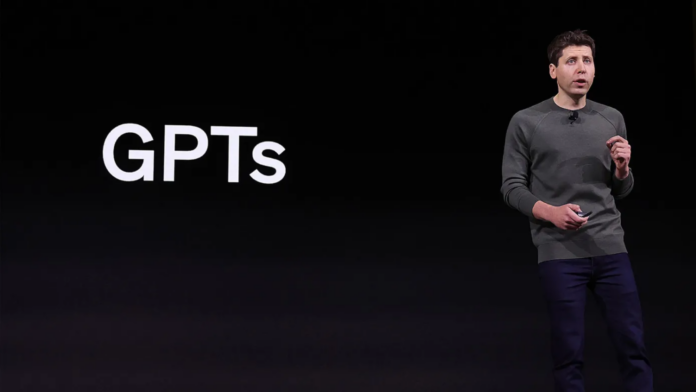OpenAI is gearing up for the much-anticipated launch of its GPT Store, a platform offering custom applications built on their text-generating AI models, like GPT-4. This development is expected to roll out in the coming week.
The company shared in an email that developers creating GPTs must comply with OpenAI’s updated usage policies and GPT brand guidelines for eligibility to list their applications on the GPT Store. These GPTs need to be made public, and developers are required to verify their user profiles before listing their creations.
The GPT Store, initially announced during OpenAI’s DevDay, faced delays likely tied to leadership changes in November. CEO Sam Altman’s departure and subsequent return with a revamped board caused a brief disruption, possibly affecting the initial launch timeline.
GPTs, with their adaptable nature, offer a spectrum of functionalities without the need for extensive coding expertise. They can range from simple tasks, like assisting in recipe ingredients based on a cookbook collection, to complex functions, such as analyzing proprietary codebases for developers.
OpenAI’s GPT Builder tool facilitates the creation of AI-powered chatbots based on user input, allowing developers to specify desired capabilities in plain language. Although developers have been able to create and share GPTs on the ChatGPT website, the upcoming GPT Store will enable public listing, fostering a more accessible ecosystem.
However, details regarding revenue sharing within the GPT Store remain ambiguous. Previous discussions with CEO Sam Altman and CTO Mira Murati hinted at a lack of concrete plans for GPT monetization. The recent email regarding the GPT Store’s launch fails to shed light on potential payment structures for developers.
An OpenAI spokesperson assured TechCrunch of forthcoming updates to address these queries next week.
The transition from AI model provider to a platform marks a significant strategic shift for OpenAI. Their earlier introduction of plug-ins for ChatGPT in March was a precursor to this evolution, facilitating third-party involvement in OpenAI’s model ecosystem.
GPTs democratize AI app development, particularly for applications utilizing OpenAI’s suite of models. This democratization could potentially disrupt consultancy firms reliant on building similar custom AI models for their clients.
The implications of this shift are complex. While it democratizes AI app development, it also raises questions about the impact on consultancy businesses. The upcoming launch of the GPT Store promises to bring further clarity on these developments and their implications.










